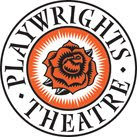Mihaela will read her work on May 4,
2014 at 7:00pm as part of the NJ Literary Artists Fellowship Showcase.
The reading will take place at New Jersey Repertory Company
179 Broadway
Long Branch, NJ 07740
Click here for directions
There is a suggested donation of $10. All tickets will be available at the door on the evening of the readings. No advanced ticket sales.
The reading will take place at New Jersey Repertory Company
179 Broadway
Long Branch, NJ 07740
Click here for directions
There is a suggested donation of $10. All tickets will be available at the door on the evening of the readings. No advanced ticket sales.
1. What
do you enjoy most about the poetic form of writing?
It provides great opportunities for reflection, distillation, and concision. I lean toward the verbose in my daily interactions and in my teaching and, always busier than I would like to be, I spend very little time with myself. Being with and within a poem allows me to enter this other space that I crave. It’s almost a religious experience. When I was in college, I used to spend two weeks in the summer at a monastery in northern Romania; I’ve replaced that with taking up lodging in the poem I’m working on.
It provides great opportunities for reflection, distillation, and concision. I lean toward the verbose in my daily interactions and in my teaching and, always busier than I would like to be, I spend very little time with myself. Being with and within a poem allows me to enter this other space that I crave. It’s almost a religious experience. When I was in college, I used to spend two weeks in the summer at a monastery in northern Romania; I’ve replaced that with taking up lodging in the poem I’m working on.
2. You
grew up in Romania, in the reign of the tyrant Ceausescu. What impact did
that have on your writing and how you see the world?
I hadn’t written
poetry before coming to the States, in my mid-twenties, and I am pretty sure I
would have never written any if I had stayed there. For the most part, I’m
writing out of the need to make sense of who I was, who I am, and the various
ways in which I’ve been able to or failed to negotiate my lives successfully. I
grew up under a despotic communist regime that despised and punished individual
expression and saw intellectuals as parasites. At the same time, deprivation
taught you how to be resourceful, how to survive and make the best of what’s
available, how to withhold judgment, how to come up with alternative ways of
looking at yourself and others. That’s made some significant impact on how I
see the world.
3. You received a Le
Chateau de Lavigny fellowship residency. Can you tell us a little bit
about your experience of spending a four-week session in a small village in
Switzerland, overlooking Lake Geneva and the Alps?
I went there as a
translator. It was pretty unbelievable. I still see the lake before I fully
open my eyes in the morning. The baker would hang the hot loaves on the door at
dawn. And a Calder mobile was hanging in the sun room over the dining room
table. That’s all I can say. No more
teasing.
4. You
are an assistant professor of English at Monmouth University and visiting
faculty in the Drew University MFA Program in Poetry and Poetry in Translation.
What is the one thing you hope your students will take away from your classes?
How to be passionate
about what they do.
5. Is
it helpful to your own creative process to be married to a poet?
Absolutely. Michael
remains my main mentor. We get excited about each other’s work and about all
the poetry coming into our house.
To learn more about Mihaela, visit our website
You can also find additional information on our website about the Literary Artist Fellowship program.
To learn more about Mihaela, visit our website
You can also find additional information on our website about the Literary Artist Fellowship program.



No comments:
Post a Comment